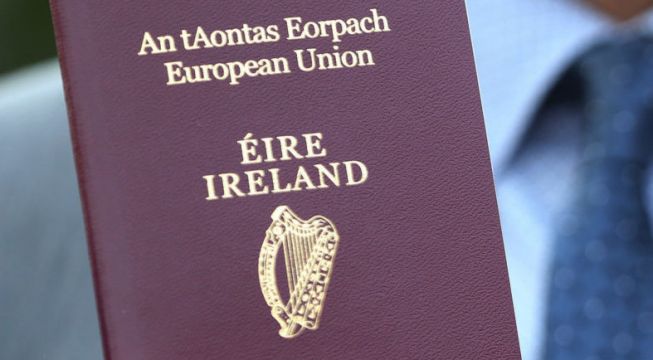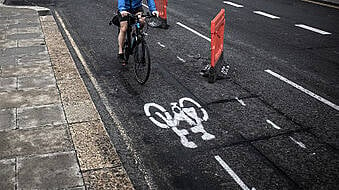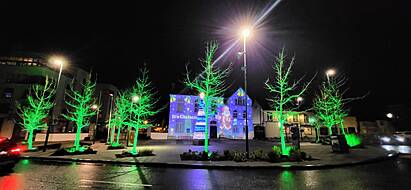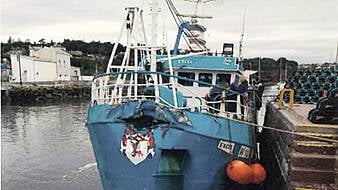A man who falsely registered himself as the father of six babies to facilitate their mothers in securing Irish passports for their children has been jailed for three years.
Alan Yip (47), of Parnell Street, Dublin city, is a British citizen and because he was from the European Union at that time of the registrations, each of the children were then entitled to apply for Irish citizenship.
This also allowed the parents “to apply for leave to remain in Ireland” as parents of an Irish child, Eoghan Cole BL, prosecuting, told the court.
Yip pleaded guilty to six counts of providing a registrar with information or particulars in respect of the birth of a child which you knew to be false or misleading at a number of Civic Registration Offices around the country on dates between August 2012 and July 2015.
Each of the offences represents the registration of the birth of each of the children and occurred in Civic Registration Offices in Drogheda, Tullamore and Dublin.
Mr Cole told Judge Martin Nolan that the offences carry a maximum penalty of five years. Additional charges of applying for passports using false documentation were taken into account.
Biological parents
Yip’s co-accused are the five biological mothers and one of the biological fathers of the five children. He also admitted falsely registering himself as the father of a sixth child, but that child’s parents are not before the court.
Each of these women and the one man pleaded guilty to an offence of providing a registrar with information or particulars in respect of the birth of a child which they knew to be false or misleading, relating to their own child.
Detective Garda Joe Gavin told Mr Cole that in 2020 a couple came forward and told officials that Yip had been falsely registered as the father of their child and they wanted this to be rectified.
The Garda National Immigration Bureau set up an operation and reviewed the births in which Yip had been registered as a father. This led to the identification of the other cases before the court.
Det Gda Gavin said in many of the cases the mothers had come to Ireland from China on a student visa and their status was due to change around the time of the birth of their child. In many of the cases their husband or partner was in Ireland illegally.
One woman later told gardaí that Yip approached her in Drogheda. She was pregnant at that point and he asked her what kind of visa she had and what status she had in the State.
He asked her what her plans were following the birth of her child and told her of the scheme. She later paid Yip €8,000 in three separate instalments to secure a passport for her child.
Cash payments
Det Gda Gavin said that the mothers handed over the cash once they received the Irish passport for their child. In most cases the passport would be posted out to Yip, he then met with their parents, received the cash and handed over the false passport.
Det Gda Gavin agreed with Oisín Clarke BL, defending, that there was at least one other person involved in the scheme. Many of the mothers handed over cash to this man, who they knew as “Simon”.
The women paid between €8,000 and €15,000 to secure the passports for their children. Mr Clarke suggested to the detective that the most his client ever received for the registration of a birth was €1,000.
Det Gda Gavin said he couldn’t confirm that but he acknowledged that Yip had no trappings of wealth and “does not seem to be a person of luxurious behaviour”.
He accepted that “people higher up the chain” were getting most of the money. He further accepted that Yip had a gambling addiction and met one of the other people involved in scheme at a gambling emporium.
Judge Nolan acknowledged that Yip was unlikely to re-offend in the future and accepted that he had a gambling problem which created a need for extra money. He said however that Yip deserved a custodial sentence before he jailed him for three years.
'Crimes of desperation'
Judge Martin Nolan addressed the barristers representing the biological parents of the children.
“These are crimes of desperation and there is only one way to deal with desperate people and that is to impose very harsh sentences,” he said.
He acknowledged that each of the accused had “perfect mitigation”.
“They all work very hard, cause no trouble, make full admissions and could be seen as additions to the country but they breached the law because they were desperate to stay.
“I have to impose custodial sentences on all of them to stop other desperate people doing the same thing,” Judge Nolan continued.
“There is a lot of people in this country who have problems with status. One way to establish status is to do so through children. Does the court not have an onus to deter such behaviour?” Judge Nolan asked before he asked each of the defence lawyers to address him in relation to his question.
It was suggested to Judge Nolan that imposing a custodial sentence on such people who are otherwise “good people” who have also suffered a financial loss would be “cruel and over severe”.
Deterrence
Kate Egan BL, defending one of the mothers, said “deterrence is not the only aim of sentence” and suggested that “deterrence can be met in other ways”.
Jane McGowan BL, defending another woman, reminded Judge Nolan that the Department of Justice would also most likely be looking at the immigration status of each of the accused and their children.
“None of them have permanent status in this country,” she said before she added that punishment has to “fit both the crime and the offender”.
Judge Nolan said he understood that sending mothers to prison does have an impact on the children while acknowledging another submission that “custody should be a last resort”.
Another lawyer submitted that such a conviction will have a lasting impact on the accused’s immigration status and hinder them in future in terms of travel and employment.
Judge Nolan said all six parents decided to participate in this scheme because they all wanted their children to get an Irish passport.
"They knew it was wrong, but they were all willing to take the chance to establish themselves and their children. I can see they were desperate people who wanted to stay here, every person understands that," he said.
"Should these six suffer prison terms to deter other parties? All six barristers have said that is going too far."
"I must consider the person before me rather than general deterrence. On balance, I have decided not to imprison them, but they have done wrong," Judge Nolan continued before he sentenced each accused to a two-year term which he suspended in full.







